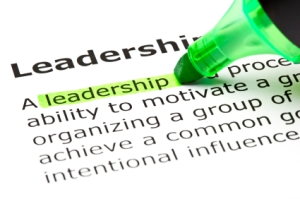As a student affairs professional, I am involved with student leadership on a number of different levels from supervising my own student staff to advising colleagues on how to develop leadership programs for their campus. I have come to learn that the term “student leadership” has come to represent a catch-all phrase for what is simply student involvement and not true “leadership.” Unfortunately, many colleges and universities continue to offer activities and programs in which they think leads to student leadership development, but actually does not.
INEFFECTIVE ACTIVITIES
Ropes Courses – Contrary to popular belief, research shows that rope courses for traditional-aged, university students have little if any educational benefit. Recreation folks and other challenge course enthusiasts would say that these experiences help to develop teamwork, but the activity does not truly reflect situations students will find themselves in while in the work world. From a student affairs standpoint, we’re not preparing our students to be Navy Seals or Army Rangers. Additionally, a ropes course experience is simply going to be a day-long activity for most student participants so most of the lessons are going to be forgotten shortly thereafter.
Ice Breakers – One of my pet peeves is when student life professionals only utilize ice breakers as means for training student leaders. While ice breakers and other activities like this are fun and can serve a purpose as a “warm-up” activity, they cannot be substituted for meeting student learning outcomes. One or two quick activities to start the day or to get students talking is perfectly fine. But using these activities for the “meat” of your program does little if anything to serve the leadership needs of your students.
Theory-Heavy Texts & Articles – Colleges can make the mistake of having leadership development classes and programs that utilize textbooks and articles that are laden with research and theory that border on hardcore management, organizational development, and industrial psychology content. While I feel this is appropriate for graduate-level work, the message is going to be lost on undergraduates. Additionally, leadership classes that do not incorporate experiential learning activities are not going to be as effective as those that do have a “hands-on” component.
RECOMMENDATIONS
Student Learning Outcomes – Based upon the mission and vision of your institution, what is it that you want your students to learn? Develop your leadership programs with student learning outcomes at the forefront rather than attempting to create outcomes based on activities that you already provide (which, unfortunately, may not even support student learning). Furthermore, develop evidence-based outcomes that can be assessed. Utilize the CAS Standards and Guidelines for Student Leadership Programs to help guide your efforts.
Experiential Learning – Partnering hands-on-learning with content and professional mentoring is the most powerful way for students to learn leadership skills. Create activities that allows students to put into action the content they are learning in the classroom or during any training sessions. Examples of well-established experiential learning applications, include cooperative education, internships and service learning.
What other leadership learning experiences have you offered for your students that you found to be effective?
